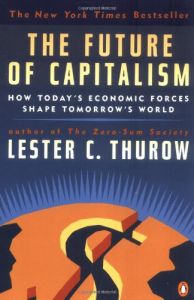
Recommendation
This is a particularly important book for two types of people to read: those who believe economic instability and inequality will lead capitalism to implode (they’re wrong); and those who believe the economic engine of capitalism is running just fine, especially in the United States, and simply needs to be left alone by meddling do-gooders, thank you (they are wrong too). Neither view is realistic. Lester C. Thurow is quite well suited to explain why. He is practically a brand name on national television, known for making more sense of the economy than anyone could possibly expect from a dean at MIT. Although Thurow wrote this book in 1996, the trade deficit, the skewed distribution of revenue and the disparity between rich and poor continue to demonstrate the validity of his conclusion that fewer and fewer can get more and more for only so long. getAbstract.com highly recommends his insightful analysis, wishing only that Thurow proposed deeper solutions for the problems he so ably diagnosed.
Summary
About the Author
Lester C. Thurow, a professor of economics at MIT, is recognized as an insightful commentator on the American economy. He has been a contributing editor to Newsweek, former dean of MIT’s Sloan School of Management and a member of the editorial board of The New York Times. He is the author of several other books, including The Zero-Sum Society, The Zero-Sum Solution, Dangerous Currents: The State of Economics and The Impact of Taxes on the American Economy.







Comment on this summary